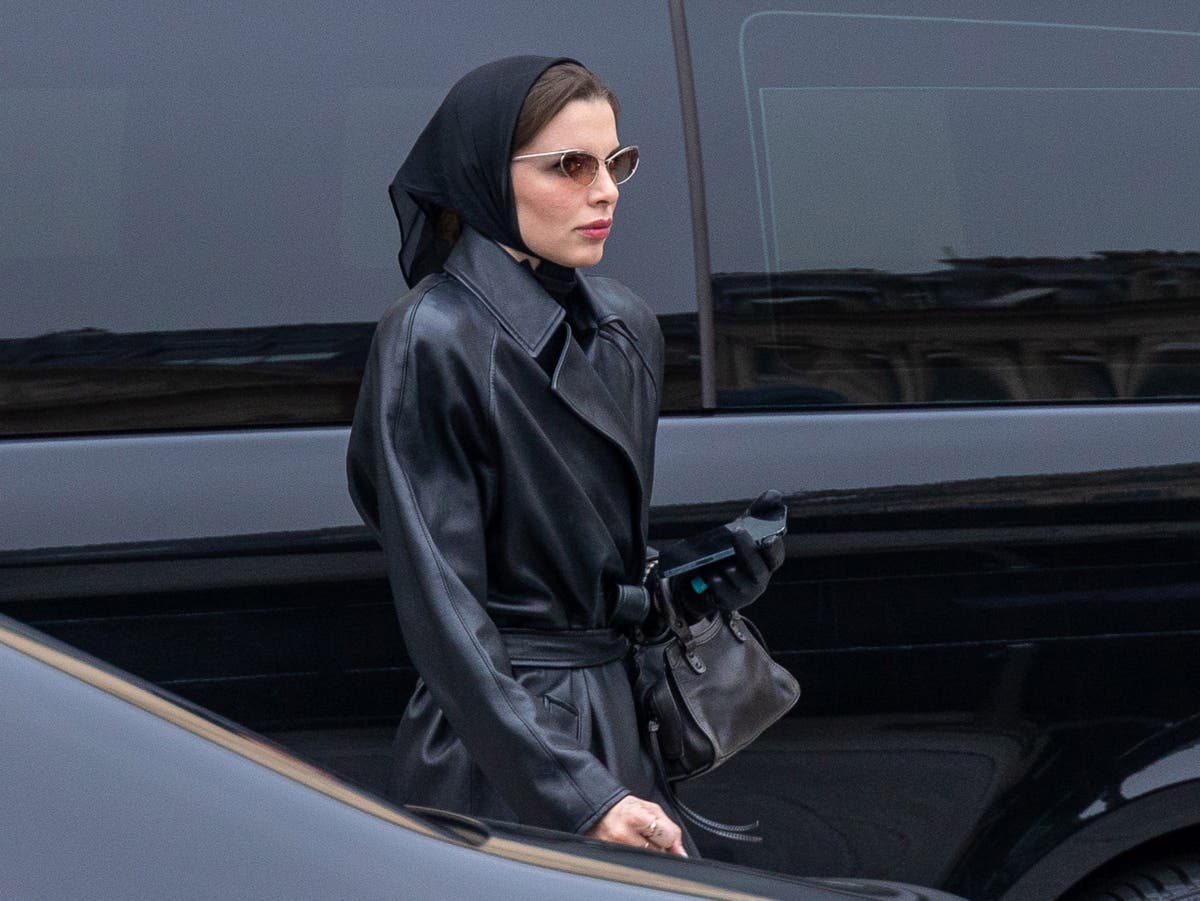
A few days ago, Vogue France shared a message that bamboozled some Muslim women and infuriated the rest of us. In a since-amended Instagram caption, the high-end fashion magazine shared a picture of Julia Fox’s arrival at Paris men’s fashion week, writing: “Yes to the headscarf! Swipe left for your recap of Julia Fox and Kanye West style journey at the haute couture shows in Paris this week.”
Fox wore a black trench coat, sunglasses and a black headscarf. The caption has since been edited.
The social media post casually celebrating a headscarf not worn by a Muslim woman was grating because it proves that any commitment to create space for Muslim women is performative at best – and as with many other industries, has led to hollow representation for our community.
This is an industry that is not committed to actually making Muslim women’s lives better in any way, or allowing them a voice – yet is still profiteering from them and their images. The real appeal for the fashion industry when it comes to Muslims is the global Muslim pound or dollar.
“Yes, the headscarf” was not a political revolt by the people at Vogue France, it was proof of an industry willing to continue being ignorant to the real lives of Muslim women. It feels like the fashion industry’s only investment in our lives is the contribution from our pockets – they don’t care about the way Western governments are diminishing our rights. Is it a shock to see a white woman being treated differently? Not at all.
France’s war against Muslim women has been persistent: they have had their rights thrown away, bit by bit, and people have largely stood by and let it happen. In 2004, France banned the wearing of hijab in state schools – in 2010 there was a niqab ban in most public spaces which was punishable by fines or citizenship classes.
Research by the open foundation documents the lives of 32 women who wore niqab before the ban in France. After it came in, the study shows, their lives got worse.
In 2019, there was a law introduced that prohibited mothers who wore a hijab from accompanying their children on school trips. In July 2021, an EU court ruled that EU companies can ban employees in certain contexts from wearing a headscarf. More recently, the French Senate voted to ban sports players wearing headscarves during competitions.
To keep up to speed with all the latest opinions and comment sign up to our free weekly Voices Dispatches newsletter by clicking here
France has institutionalised its islamophobia – singling out Muslim women, separating them and trying to erase their rights to their own bodies. These same rights are sacrosanct for many feminists in the West, but have been made optional when it comes to Muslim women.
Maybe, when the world watches what is happening in France, it sees singular reports – but what I see, as a Muslim woman, is France forcefully undressing us and moving us around like puppets. Society will never find us enough until we abandon our faith altogether.
While touting the French values of “liberté”, France has hacked at the autonomy of Muslim women; demanding people see the hijab as oppressive, and the legislation around it to be an act of mercy and empowerment by the French government. It is neither.
In fact, this is the weaponisation of secularism (laïcité) and the legitimisation of Islamophobia. Those who are not Muslim are allowed to embody Muslim or modest clothing in France, and those who are Muslim are told that if they do so, they will be fined or shoved away from public life.
Vogue France’s commentary is at best, unhelpful, and at worst, only contributes to the problem.







